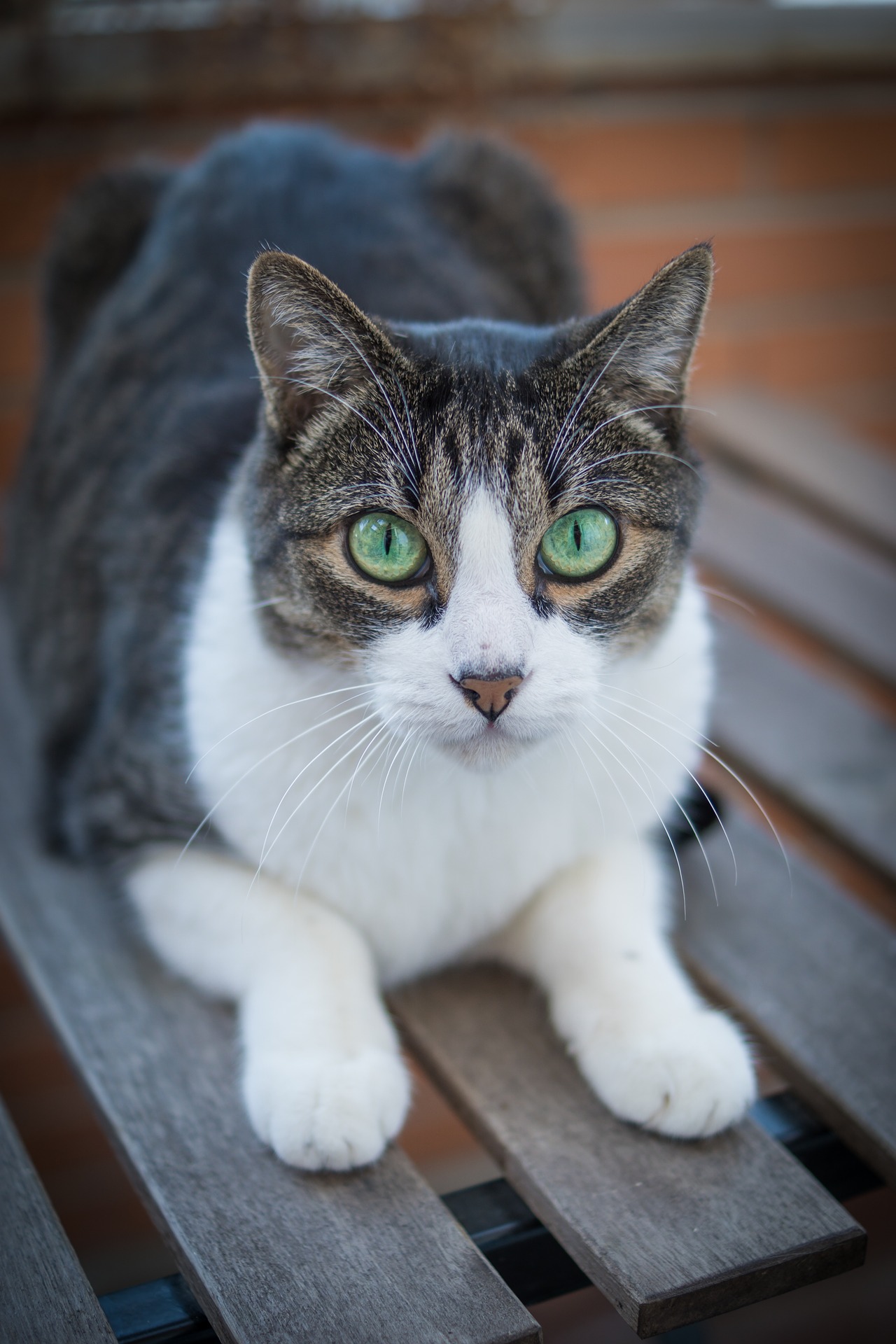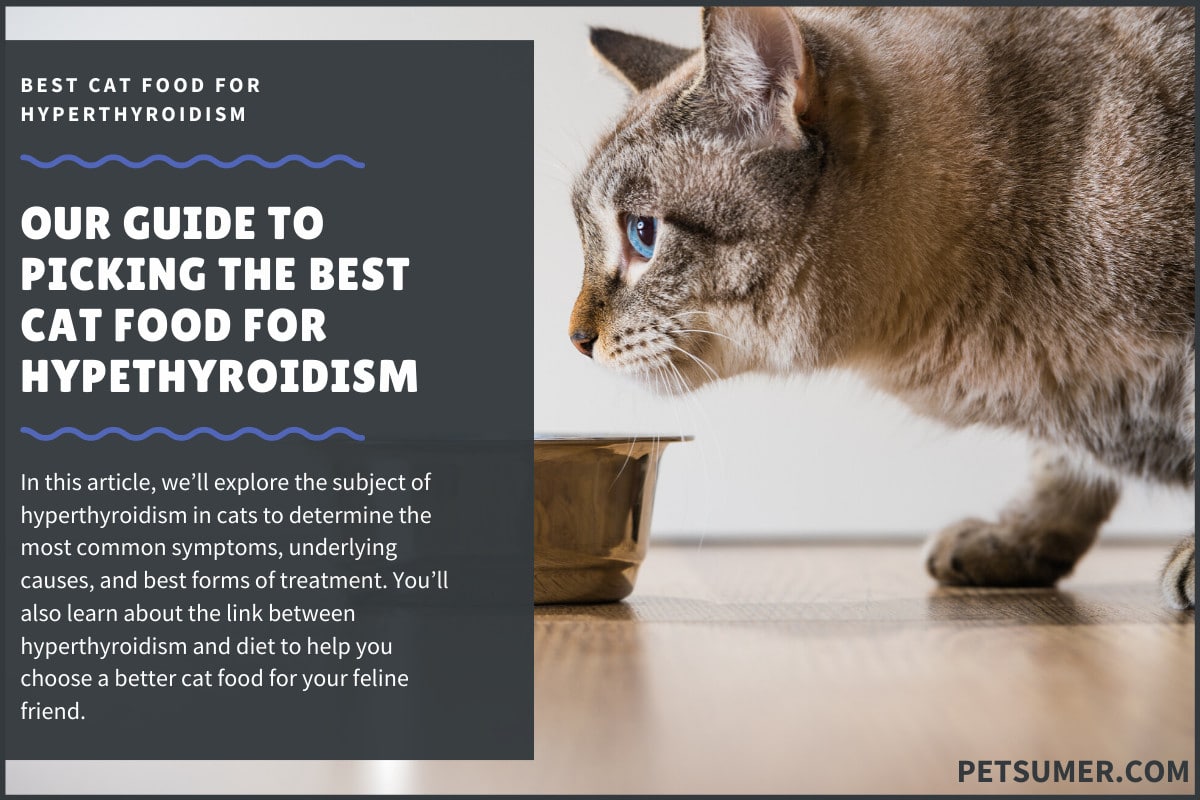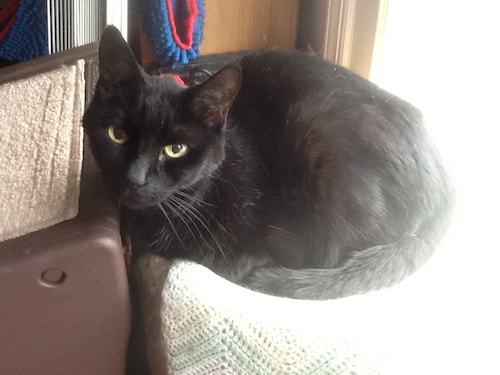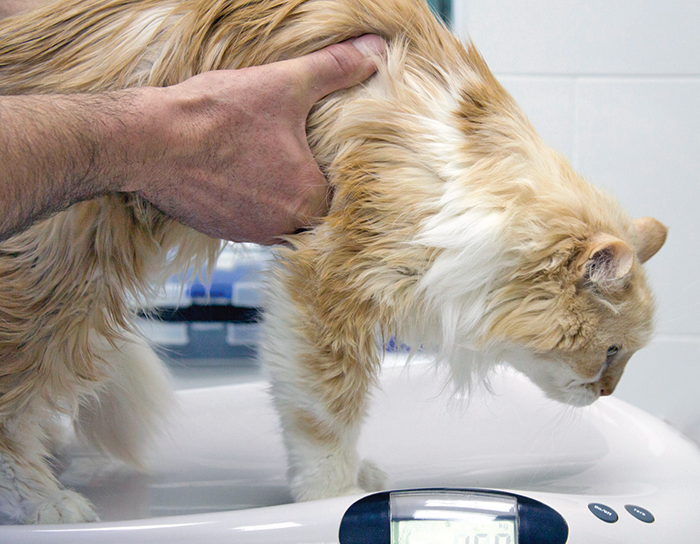The high metabolism that this excess causes results in increased appetite weight loss vocalization vomiting and diarrhea and excessive thirst and urination.
Can diet cause hyperthyroidism in cats.
However it may not be appropriate for all cats depending on other medical conditions so important to work with your veterinarian and decide if using this therapeutic diet is the best way to manage your cat s condition.
More precisely it seems that the risk of developing thyroid tumors increases by 3 times if the diet mainly consists of canned food.
The most common clinical signs of hyperthyroidism are weight loss increased appetite and increased thirst and urination.
Selecting a cat food based on diet composition and ingredients like normal and diabetic cats i believe that it makes sense to feed most hyperthyroid cats a diet composition close to what they would be getting in the wild.
Hyperthyroidism may also cause vomiting diarrhea and hyperactivity.
What causes hyperthyroidism in cats.
Fishy food and feline hyperthyroidism.
Use of cat litter.
Prescription diets for cats with hyperthyroidism.
Eating a diet consisting of more than 50 canned food.
Hyperthyroidism is unfortunately common in older cats and many believe that it is linked to the foods they eat.
Nobody knows what causes hyperthyroidism but the following factors have been noted as possible risk factors.
Since canned food is believed to be one of the main causes of hyperthyroidism in cats making several diet adjustments may work both in the prevention and the treatment of this feline health condition.
Cats afflicted with hyperthyroidism usually develop a variety of signs that may be subtle at first but that become more severe as the disease progresses.
The coat of affected cats may appear unkempt matted or greasy see figure 1.
That would be a diet composed of approximately 50 70 protein 5 10 carbohydrates and 30 40 fat.
Eating a fish based canned food diet.
The idea behind iodine restriction is this.
Flea treatments have been ruled out as a contributing factor.
Hyperthyroidism in cats is a disorder of the thyroid gland which results in excessive t3 and t4 hormone levels circulating in the blood.
A common diet traditional veterinarians recommend for a hyperthyroid cat is a prescription canned diet by hill s y d.
Hyperthyroidism can be managed through an iodine restricted prescription diet often without the use of other medical treatments.
Since adequate iodine intake is necessary for the production of.
However the effects of long term iodine restriction on a cat s health are still being studied.
Conveniently the main use of iodine in the body is the production of thyroid hormone so a deficient diet shouldn t cause any other health issues in a hyperthyroid cat.
In fact some studies have linked certain feline commercial diets directly to this disease.





























